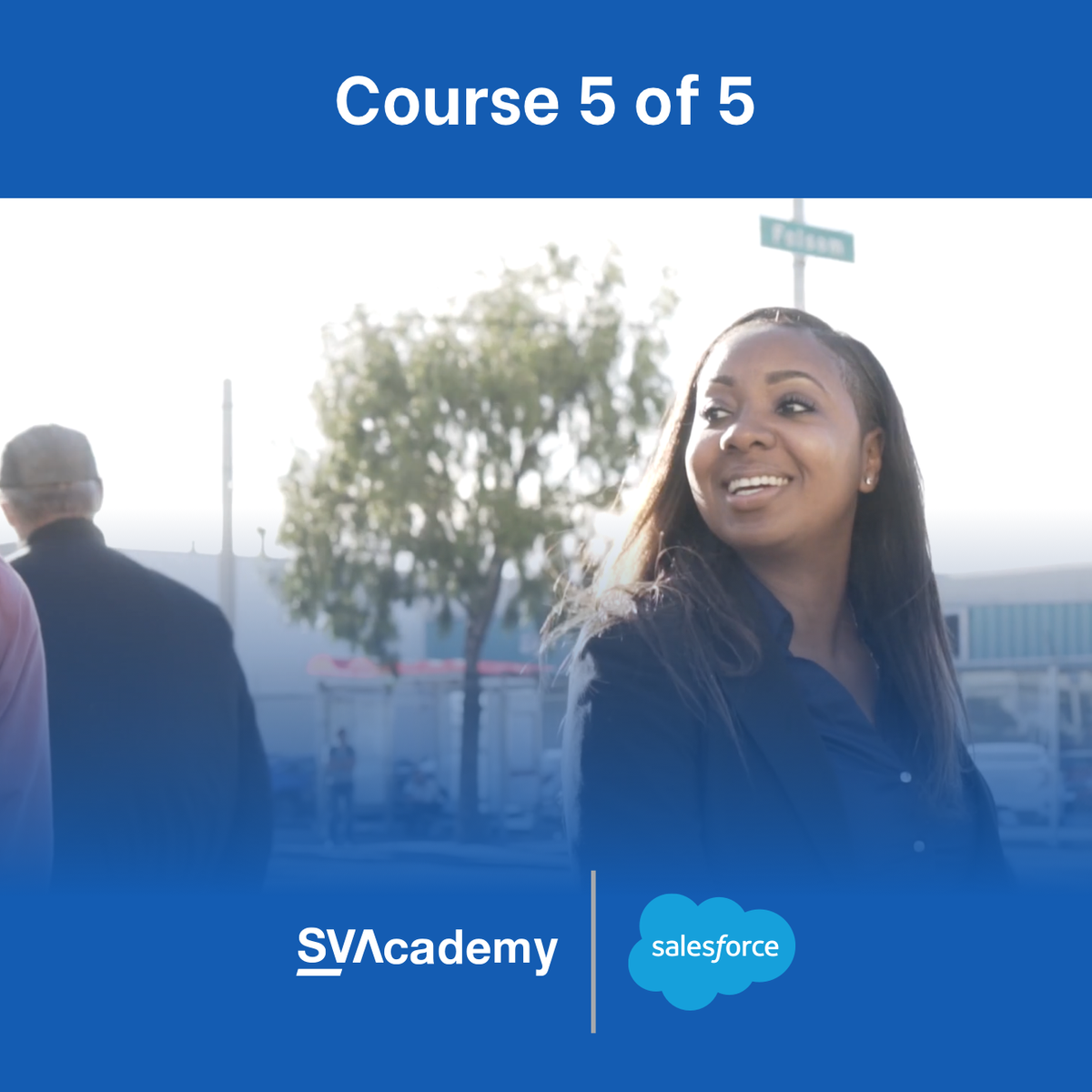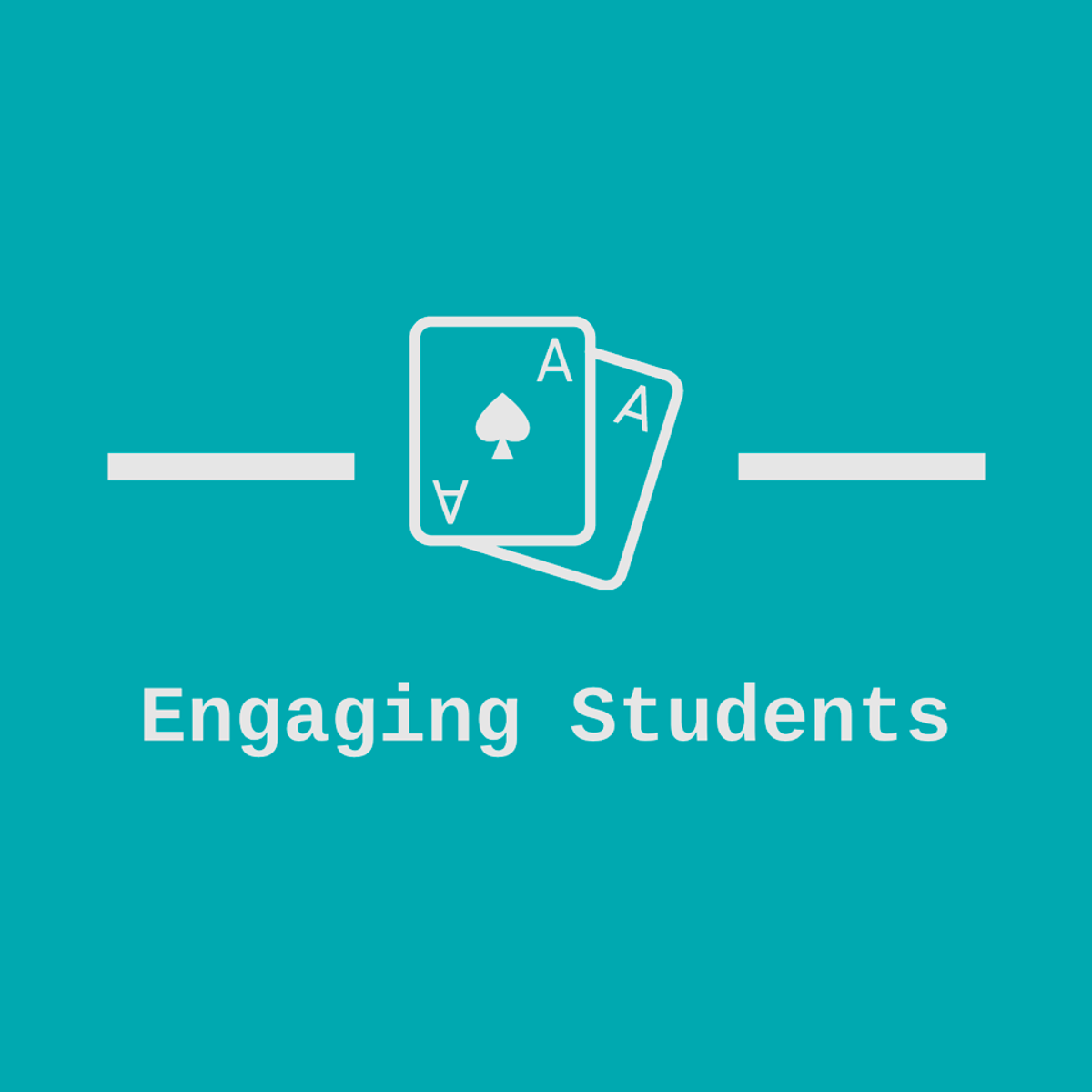Back to Courses









Personal Development Courses - Page 4
Showing results 31-40 of 514

Practical Guide to Navigating Professional Relationships
This is Course 5 in the Salesforce Sales Development Representative Professional Certificate. In order to successfully complete the course, please ensure you have taken Course 1: Groundwork for Success in Sales Development, Course 2: Foundations for Interviewing with Confidence, 3: Conversational Selling Playbook for SDRs, and 4: Boosting Productivity through the Tech Stack.
In this course, you’ll develop ‘power’ skills that are often overlooked but can actually determine success in your role. As tech industry professionals, we often get trained on how to do the technical work but not on how to give and receive feedback, communicate effectively, present ourselves professionally, and manage relationships. These human-centered skills make all the difference when you are being considered for a promotion within your company or applying for an exciting role at another company. By taking this course, you’ll gain foundational knowledge and skills to crush it as a top-performing SDR and beyond.
By the end of the course, you will be able to:
- Build an empathetic approach to communication that highlights your professional demeanor
- Produce a message with confidence and clarity in order to achieve results
- Develop a clear understanding for implementing specific written communication styles in varying scenarios
- Cultivate an understanding of diverse opinions and multiple perspectives in the workplace
- Compose a three-month plan to implement feedback, optimize learning, and successfully ramp up your career
To be successful in this course, you should have:
- An ability to communicate in verbal and written form in a way that is accessible and understandable by a general audience (you don’t need to be formal or refined)
- Baseline computer literacy (you must be able to use a word processor, web search, and email)
- Familiarity with social media, including LinkedIn
- Ability and willingness to learn new technology tools
- Motivation to grow personally and professionally
- Hunger for feedback and coaching
- Successfully completed the previous courses in this training

Teamwork Skills: Communicating Effectively in Groups
Recently revised and updated! Effective teamwork and group communication are essential for your professional and personal success. In this course you will learn to: make better decisions, be more creative and innovative, manage conflict and work with difficult group members, negotiate for preferred outcomes, improve group communication in virtual environments, develop a better overall understanding of human interaction, and work more effectively as a team. Our goal is to help you understand these important dynamics of group communication and learn how to put them into practice to improve your overall teamwork.

Take the Lead on Healthcare Quality Improvement
In this course you will learn about the importance of quality in healthcare and how you can contribute by implementing a quality improvement (QI) project to improve processes of care and patient outcomes. You will learn about powerful tools to add to your QI ‘toolbox’ during short lectures and reflective exercises. You will apply these tools to the implementation of a QI project in your own practice setting or an area of personal improvement. At the completion of the course, you will have a storyboard that captures your QI project success to share with others.
The QI project will be considered within the context of interprofessional teams and from a systems perspective. The objective of this course is to empower you, the working healthcare professional, to improve your knowledge and skills in the science of quality improvement so that you can take action in your own clinical setting to improve the quality of care for your patients and their families.

Improving Math Engagement with Prodigy
By the end of this project, you will have discovered an excellent math website that has been proven to increase student engagement and even improve their math skills. Prodigy is a free math website where students enjoy learning math as they explore and work through a fantasy world complete with epic questions and in-game rewards. While students are enjoying the game, teachers are gathering valuable data that shows what math skills their students already have and where they need to improve. As a teacher, you can assign specific questions and content to your students so that the skills they practice while playing the game are aligned to the skills you are focusing on in class. Watch student engagement and skill increase in leaps and bounds as you use Prodigy in your classroom or at home.
*You will need a free Prodigy account for this project.

Overcoming Bias
This course is for anyone that wants to learn more about bias and how it can affect business, relationships, and communities. The course begins with an exploration of the word bias and its many definitions. The course then covers workplace bias and strategies for overcoming personal bias. The course ends with an activity in which the learner creates an action plan for a bias free workplace.

Sleep: Neurobiology, Medicine, and Society
The objective of this course is to give students the most up-to-date information on the biological, personal, and societal relevance of sleep. Personal relevance is emphasized by the fact that the single best predictor of daytime performance is the quality of the previous night's sleep. The brain actively generates sleep, and the first section of the course is an overview of the neurobiological basis of sleep control. The course provides cellular-level understanding of how sleep deprivation, jet lag, and substances such as alcohol, ,caffeine, and nicotine alter sleep and wakefulness. The second section of the course covers sleep-dependent changes in physiology and sleep disorders medicine. Particular emphasis will be placed on disorders of excessive sleepiness, insomnia, and sleep-dependent changes in autonomic control. Chronic sleep deprivation impairs immune function and may promote obesity. Deaths due to all causes are most frequent between 4:00 and 6:00 a.m., and this second section of the class highlights the relevance of sleep for preventive medicine. The societal relevance of sleep will be considered in the final section of the class. In an increasingly complex and technologically oriented society, operator-error by one individual can have a disastrous negative impact on public health and safety. Fatigue-related performance decrements are known to have contributed as causal factors to nuclear power plant failures, transportation disasters, and medical errors.

U101: Understanding College and College Life
College can be confusing and intimidating, but U101 can help. If you were just admitted to college and are nervous about what the next step in life might look like, this course is for you. If you are the parent of a newly admitted college student and curious about what college life is like, this course is also for you.
While your specific college will, no doubt, provide additional orientation material, we wanted to give some basic information about what life might be like at a large American University. You might be years away from college or enrolled right now; either way, U101 has some excellent advice from college students, professors, administrators, and staff.
At the conclusion of the course, learners should:
1. Understand the basics of how colleges and universities operate.
2. Identify and describe what faculty are looking for in college-level academic work.
3. List some effective study strategies.
4. Identify some strategies for exploring and selecting a major.
5. Identify the various types of grants and scholarships available and describe the steps involved in applying to these.
6. Discuss the college life, with special attention to the benefits/limitations of living on or off campus.
7. Identify some strategies for getting the most out of campus life activities (investigating student clubs, fraternities, sororities, etc.).
The course is divided into 4 weeks/8 lessons, which provide an overview of the different aspects of college life. If you were just watching the videos and looking at some of the links, the whole course would take about 4-5 hours.
Week 1
Lesson 1. Welcome to U101!
Lesson 2. Understanding the Nature of College
Week 2
Lesson 3. Succeeding as a Student
Lesson 4. Building Your Major
Week 3
Lesson 5. Financing Your Education
Lesson 6. Living On and Off Campus
Week 4
Lesson 7. Getting Involved in Campus Life
Lesson 8. Conclusion
Please join us for a short exploration of modern American Colleges. Hopefully, this course can help demystify your upcoming college experience.

Building High-Performing Teams
Teams are essential to the modern organization, but most never reach their potential. Co-workers miscommunicate, and groups struggle to adapt to changes in the market or their organizations. When teams lack self-awareness about these challenges, performance suffers. Based on years of team culture research and consulting experience, this course helps you understand the problems that hurt productivity, and gives you tools for creating positive change. This course also guides you through creating the ground rules and structure needed to set your team up for success.
You gain the skills to diagnose issues such as conflicts, groupthink and lack of commitment in your team before they get out of control. The course offers frameworks to adjust team behaviors and get the best performance out of your people. You also understand frequent stumbling blocks for common team types, such as startups and virtual teams, and learn solutions tailored to each one.

Preparing for Graduate Study in the U.S.: A course for international students
This course prepares you to embark upon your future graduate studies in the U.S. with confidence. In this MOOC, you'll have the opportunity to meet other prospective graduate students, hear from experienced international graduate students in the United States, and to practice sharing your own thoughts, stories, and expertise in English. You’ll select a “target” graduate program at a U.S. college or university to use as a case study throughout the course. You may already be admitted to this program, or it may be an institution you hope to attend in the future. You will identify resources that support international graduate students in your target campus. You will have multiple opportunities to practice your English language skills through practice assignments and through interactions with one another.
Objectives
By completing the course, you should enhance your ability to reach the following objectives for the purpose of communicating successfully as a new international graduate student studying in the United States.
1. Introduce yourself professionally
a. Explain your expertise
b. Begin networking with members of your target institution
2. Explore the campus climate of your target institution
a. Identify the local vocabulary used at your target institution to describe campus climate topics such as diversity, inclusion, or equity
b. Identify skills and perspectives you can contribute to the diversity of your target institution
3. For collaboration
a. Use English to negotiate group roles
b. Use English to express opinions
4. For academic writing
a. Identify disciplinary norms in academic writing
b. Cite source material appropriately in academic writing
5. For improving English
a. Use at least three digital resources to investigate language use
b. Use at least three digital resources to practice English fluency
c. Use at least two new daily life opportunities to improve English for academic, social, or teaching purposes

Storying the Self: (Re)Claiming our Voices
Engage with lived experiences and identities that have often been denied a public voice. Consider the nuanced contexts of race, gender, class, language, ability, and how these impact your position as a leader and creator. You’ll question what it means to reclaim your narrative of yourself and to engage with the strength of vulnerability as a leader and creator. In a creative exercise, you’ll engage with multiple perspectives on a past conflict and use this reflection to practice perspective-taking and listening that can generate creative work and deepen leadership skills for empathy, listening and engaging in multicultural workplaces.
Popular Internships and Jobs by Categories
Find Jobs & Internships
Browse
© 2024 BoostGrad | All rights reserved